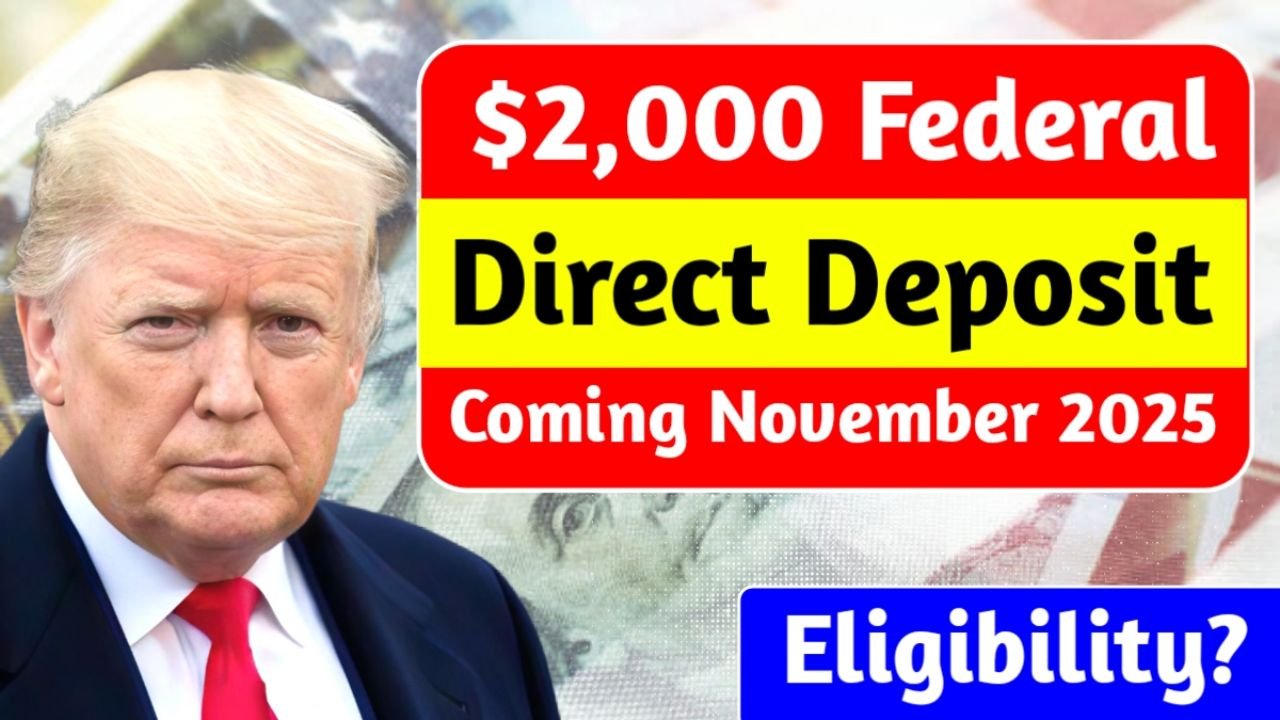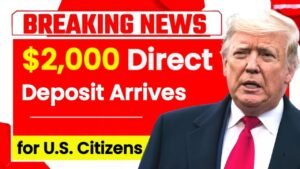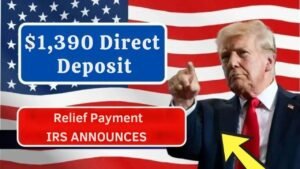The possibility of a $2,000 federal direct deposit in November 2025 has generated significant attention among Americans concerned about rising living costs. With prices for rent, groceries, healthcare, and utilities continuing to climb, many households are watching closely for updates on potential relief. While political discussions have hinted at a one-time $2,000 payment per eligible citizen, no official confirmation from the IRS or Congress exists as of November 2025.
This guide breaks down what is known, what remains speculative, and how citizens can stay informed and prepared.
Current Status of the $2,000 Federal Direct Deposit
- As of now, the IRS has not approved any new $2,000 direct deposit program.
- Reports stem largely from political statements and proposals rather than formal legislation.
- Congress must authorize and fund any such payment before the IRS can distribute it.
- The Treasury and IRS have warned the public to ignore online claims promising immediate deposits.
Key takeaway: Until a bill is passed, the $2,000 payment remains a proposal, not a confirmed benefit.
Understanding the Proposed $2,000 Payment
The proposal envisions a one-time direct deposit to provide temporary relief for households struggling with inflation. Similar to previous COVID-era stimulus payments, the goal would be to help citizens cover essential expenses.
Challenges include:
- Funding the program without increasing the national deficit
- Ensuring sufficient revenue if relying on tariffs or other sources
- Managing nationwide distribution efficiently
Possible Eligibility If Approved
While no final rules exist, experts anticipate eligibility may mirror previous relief programs:
- U.S. citizens and lawful permanent residents with valid Social Security numbers
- Income limits:
- Single filers: under $75,000
- Married joint filers: under $150,000
- Federal benefit recipients: Social Security, SSI, SSDI, VA beneficiaries may receive automatic payments
- Phase-out rules: Higher-income individuals could see reduced payments or be excluded
Keeping tax returns current and up-to-date is essential for eligibility verification.
Staying Informed and Safe
Until official announcements are made, Americans should rely only on trusted sources:
- irs.gov for verified updates and schedules
- Federal press releases from Treasury or IRS
- Avoid social media posts, emails, or websites claiming early access to funds
- Never share personal banking info or SSNs on unverified platforms
Quick tip: Scammers often exploit rumored payments. Report any suspicious activity to the Federal Trade Commission (FTC) immediately.
Economic Impact and Public Reaction
- Many Americans view a $2,000 payment as a vital lifeline for households under financial strain.
- Economists suggest direct deposits can boost consumer spending and help local economies temporarily.
- Experts warn that large-scale payments require careful fiscal planning to avoid inflationary pressure or long-term budget imbalances.
Practical Steps for Citizens
Even though the program is unconfirmed, individuals can prepare by:
- Ensuring tax returns are filed accurately
- Verifying direct deposit information with the IRS
- Monitoring official portals for updates
- Considering ongoing federal or state assistance programs like SNAP, Medicaid, or energy aid
These steps can help Americans receive payments quickly if the initiative is approved.
FAQs
Q1: Has the $2,000 federal direct deposit been approved?
A1: No, as of November 2025, it remains a proposal with no official IRS or Congressional approval.
Q2: Who would be eligible if it passes?
A2: Likely U.S. citizens, permanent residents, and certain federal benefit recipients within income limits.
Q3: How would payments be distributed?
A3: If approved, direct deposits would likely be prioritized, followed by paper checks for those without banking info on file.
Q4: Can scammers trick me with fake $2,000 deposit claims?
A4: Yes, always verify information on irs.gov and avoid sharing personal details online.
Q5: Should I update my tax or banking information now?
A5: Yes, keeping records accurate ensures faster processing if the program is enacted.
Conclusion
The $2,000 federal direct deposit for November 2025 remains a potential relief measure rather than a confirmed benefit. Americans should focus on official IRS announcements, maintain accurate records, and avoid scams. By staying informed and prepared, citizens can ensure they are ready to receive support if and when Congress approves the program.





